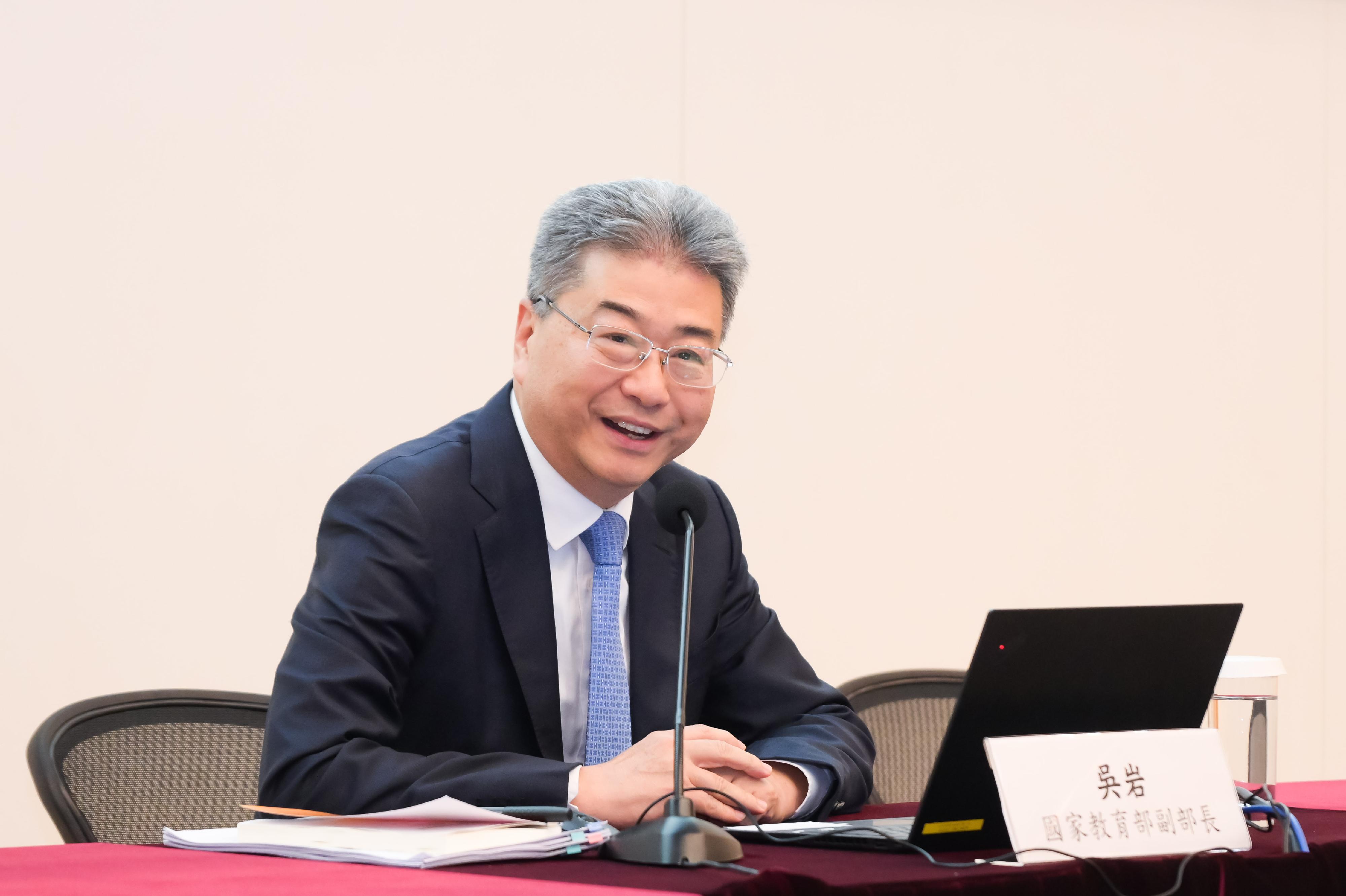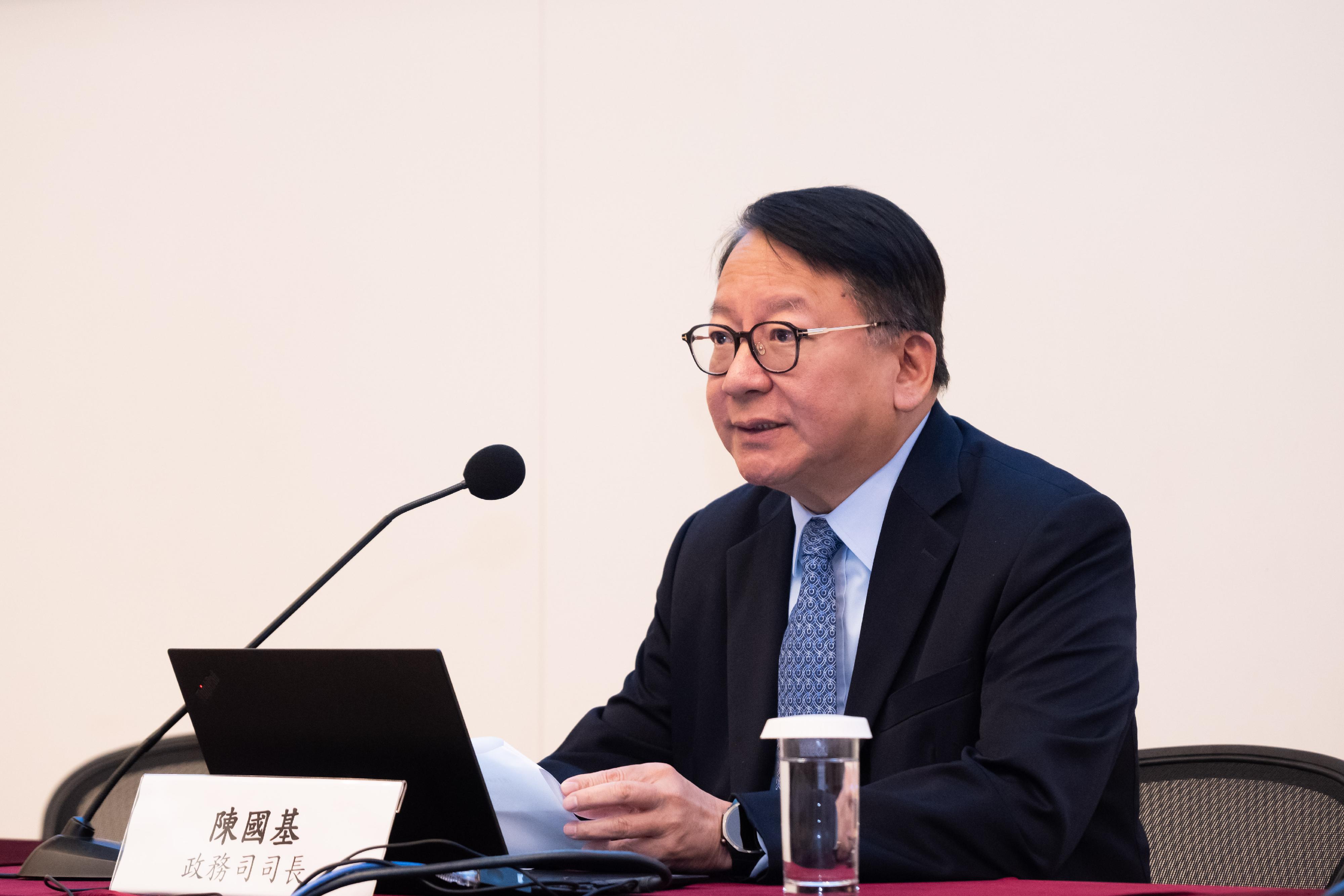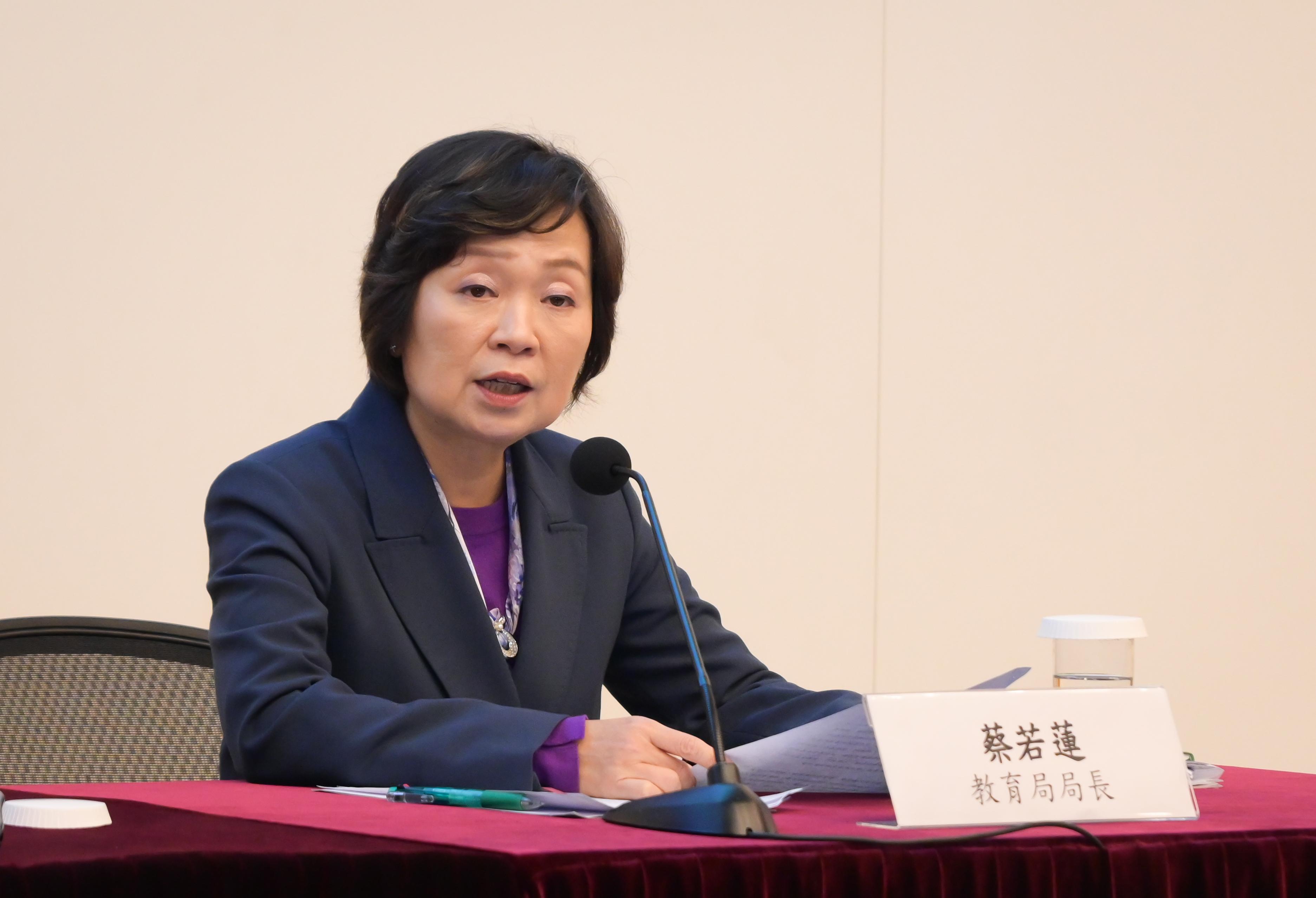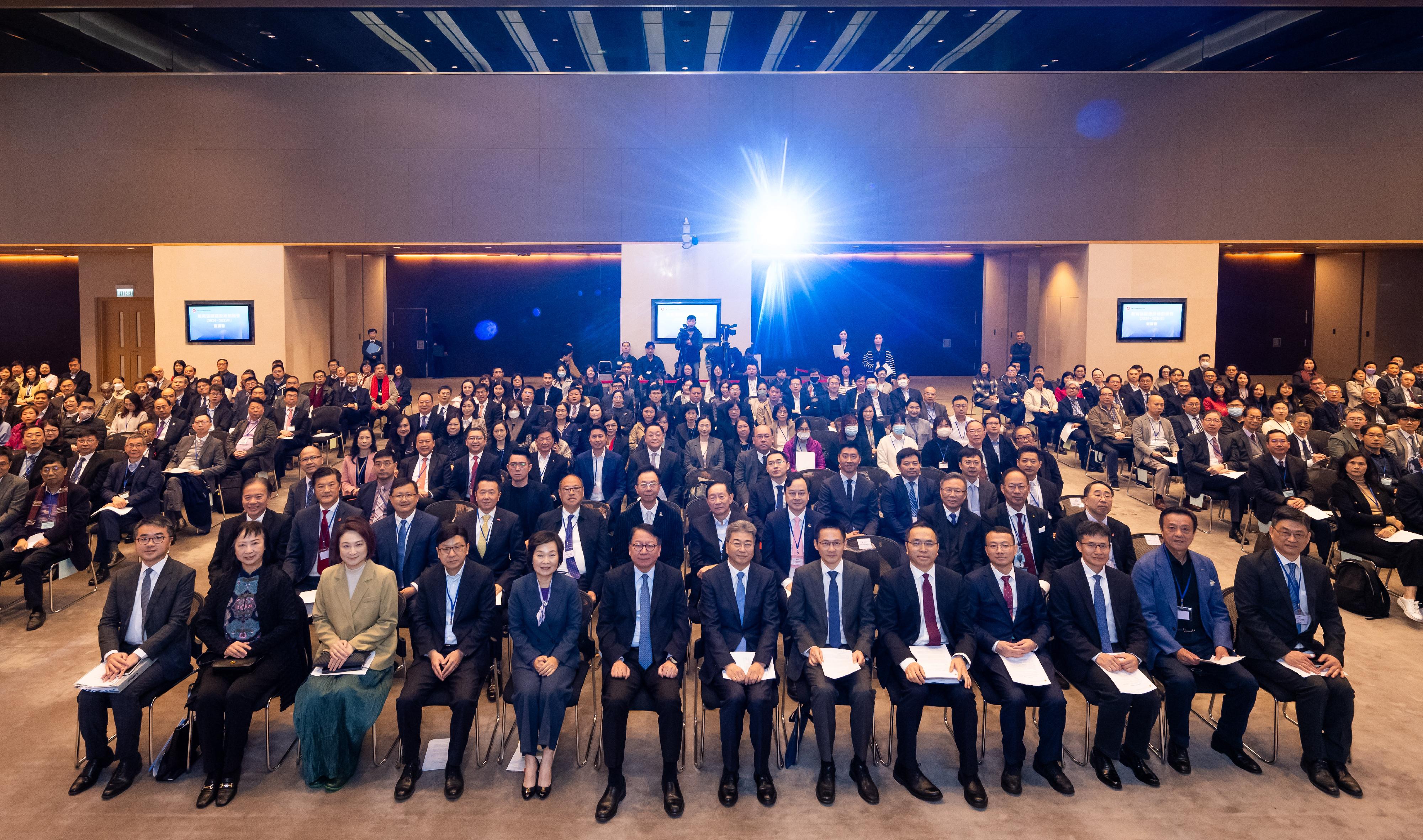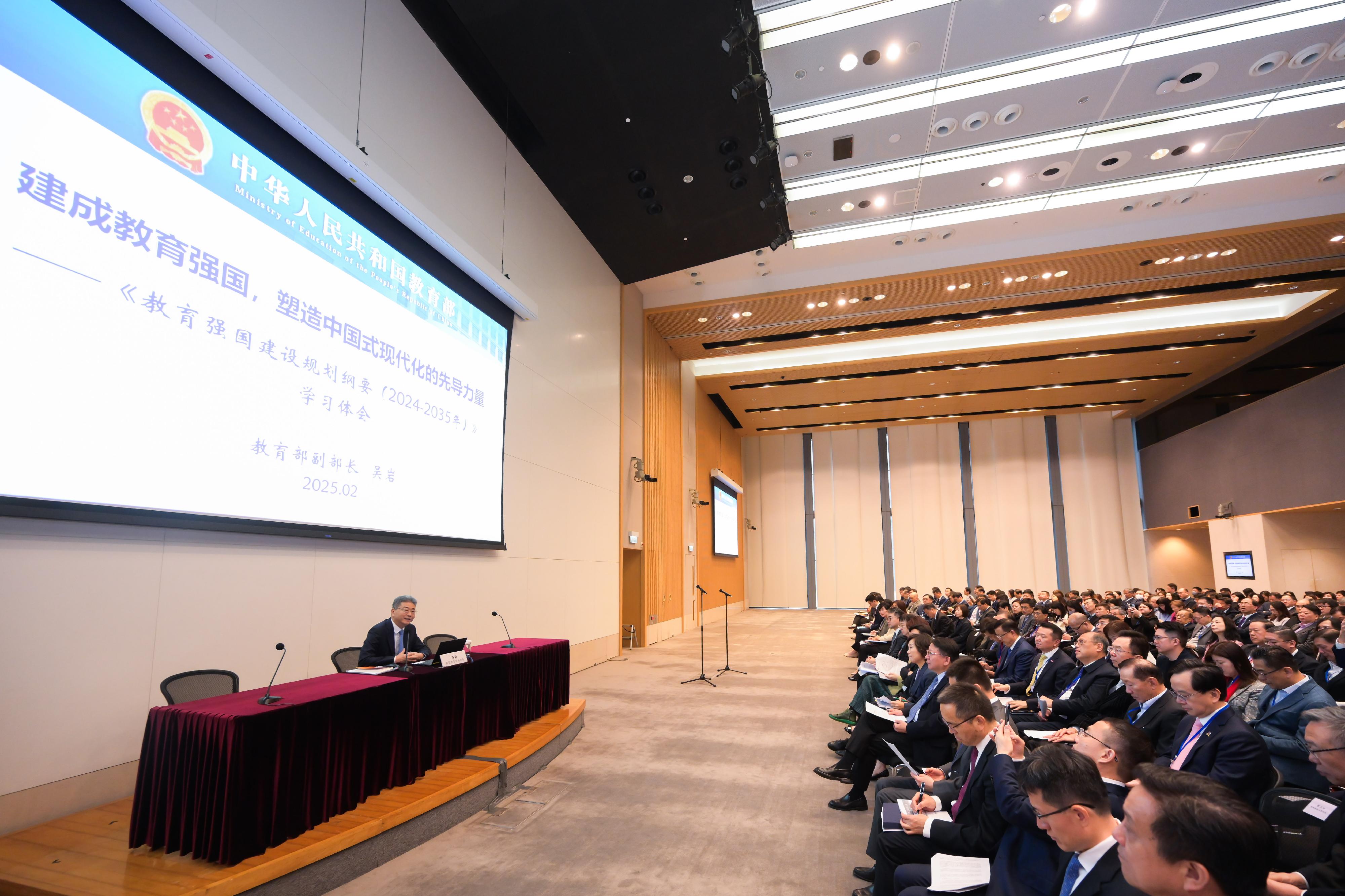LCQ1: Action Plan on Green Maritime Fuel Bunkering
Following is a question by the Hon Chan Hak-kan and a reply by the Secretary for Transport and Logistics, Ms Mable Chan, in the Legislative Council today (February 12):
Question:
Regarding the Action Plan on Green Maritime Fuel Bunkering (the Action Plan) promulgated by the Government last year, will the Government inform this Council:
(1) given that the Action Plan proposes to "adopt a multi-fuel strategy", but it is learnt that at present, there are many types of green maritime fuels in the market, and most of them are at an early stage of development, while investments in the diversified development of fuels will not only increase the operational burden on investors, but also reduce the cost-effectiveness of such investments, whether the authorities will expeditiously specify the "designated fuels" and set relevant standards, carbon reduction targets, timetables, etc, so that investors can concentrate their resources and carry out long-term development planning;
(2) as it is learnt that at present, the Mainland is already one of the major producers of maritime fuels such as bio-diesel and green methanol, and the related technologies have become relatively mature, how the authorities will, through administrative measures, support Hong Kong enterprises in fully grasping the advantage of enjoying the strong support of the motherland to build Hong Kong into a maritime fuel bunkering centre; and
(3) given that the Action Plan proposes to set up a Green Maritime Fuel Bunkering Incentive Scheme within this year to encourage pioneer companies to develop green maritime fuel bunkering business in Hong Kong, when the authorities will announce the details of the Scheme?
Reply:
President,
The maritime industry accounts for about three per cent of the world's carbon emissions. In order to reduce maritime operations' negative impact on the environment, the International Maritime Organization (IMO) has set out a target of achieving net-zero carbon emissions from international shipping by or around 2050. There are many ways to reduce emissions, including adoption of energy saving technologies, switching to more energy-efficient vessels, usage of smart maritime technologies, among which the use of green maritime fuels is by far the most effective. Therefore, the industry has started to switch to using low or even zero-carbon green maritime fuels. Hong Kong must enhance its green maritime fuel bunkering capabilities to respond to market needs, so as to give full play to our advantage of our excellent geographical location and our position as a major bunkering port in South China, consolidate Hong Kong's position as an international maritime centre, and maintain the competitiveness of our port.
The Government promulgated the Action Plan on Green Maritime Fuel Bunkering (Action Plan) in November last year, setting out clear targets with five strategies and 10 action measures with an aim to develop Hong Kong into a green maritime fuel bunkering centre. The Government has received strong support from the industry and maintained positive communication with Legislative Council members since the promulgation of the Action Plan. Various domestic and international players from different parts of the green maritime fuel bunkering supply chain have also expressed their interest in developing relevant businesses in Hong Kong.
Regarding the Hon Chan Hak-kan's questions, the reply is as follows:
(1) Currently, a number of green maritime fuels, including biodiesel, liquefied natural gas (LNG), green methanol, green ammonia and hydrogen are being used or tested by the industry, but not a single type of green maritime fuel is being particularly favoured. According to publicly available information on new vessels on order, by 2030 we expect that there will be over 1 000 vessels capable of being powered by LNG and nearly 400 methanol ones by 2030, as well as a number of hydrogen and green ammonia vessels in the world. Meanwhile, as most of the vessels that can use green maritime fuels will likely have dual-fuel engines, these vessels as well as the other traditional ones not yet due for replacement will likely adopt biodiesel, which is cheaper than other green maritime fuels currently, to reduce emission in the short term.
Taking into consideration the current trend in the maritime industry to retrofit or build new vessels powered by different green maritime fuels, the aforementioned figures, the high investment involved in ordering or retrofitting vessels, and that new vessels can generally operate for around more than 20 years after delivery, we expect diversified development in the green maritime fuel bunkering market in the coming decades. On one hand, Hong Kong will adopt a "multi-fuel" strategy like major ports such as Singapore, Rotterdam and Shanghai. But on the other hand, as mentioned in Hon Chan Hak-kan's questions, we aim to provide a clear orientation on fuel options to the industry and the society, including making biodiesel bunkering immediately available, developing LNG and green methanol bunkering in the short- and medium-term respectively, and considering the development of the bunkering of hydrogen and green ammonia in the long run.
Following the aforementioned orientation and development directions, there are several actions we are about to implement, including:
- in terms of LNG, we issued the Code of Practice (CoP) on LNG bunkering in January and the trade will soon conduct the first ship-to-ship LNG bunkering in Hong Kong waters this week;
- on green methanol, we will within this year invite the industry to submit expressions of interest in relation to developing green methanol storage facilities on a site in Tsing Yi South, and complete the CoP on green methanol bunkering; and
- as for hydrogen and green ammonia, we will simultaneously commence a feasibility study on the future bunkering of these fuels within this year, with a view to setting out a clear development direction.
As regards standards on green maritime fuels, the IMO expects to finalise a number of mid-term measures within this year, which are expected to enter into force around 2027 and among which the "Green House Gas (GHG) fuel standard" will require the phased reduction of the GHG intensity of maritime fuels. As an Associate Member of IMO, Hong Kong will respond and follow the requirements in this regard.
(2) Establishing a stable green maritime fuel supply chain is one of the action measures set out in the Action Plan. Given Hong Kong's proximity to the Mainland, which is a major producer of a number of green fuels, we expect that most of Hong Kong's green maritime fuels will be imported from the Mainland. In fact, currently some Hong Kong companies have already set up production facilities in different provinces and cities in the Mainland, including Inner Mongolia and Foshan, to produce green maritime fuels, while some Hong Kong and Mainland producers have expressed interest in providing such fuels to Hong Kong. Such stable green maritime fuel supply chain can also allow Hong Kong to take advantage of its robust and resilient financial system, good business environment, and regulatory regime in line with international standards, to develop into an international green maritime fuel trading centre.
At present, the Government will actively foster the conclusion of green maritime fuel offtake agreements by shipping companies interested in bunkering such fuels in Hong Kong. The Marine Department has set up a dedicated team to provide one-stop services for relevant companies, so as to help build a systematic and organic supply chain in Hong Kong.
(3) As for the Green Maritime Fuel Bunkering Incentive Scheme, it aims to encourage pioneer enterprises to start green maritime fuel bunkering businesses in Hong Kong. At present, we are formulating the details of the scheme, and expect to establish the scheme in 2025 and will announce it in due course.
Thank you, President.
